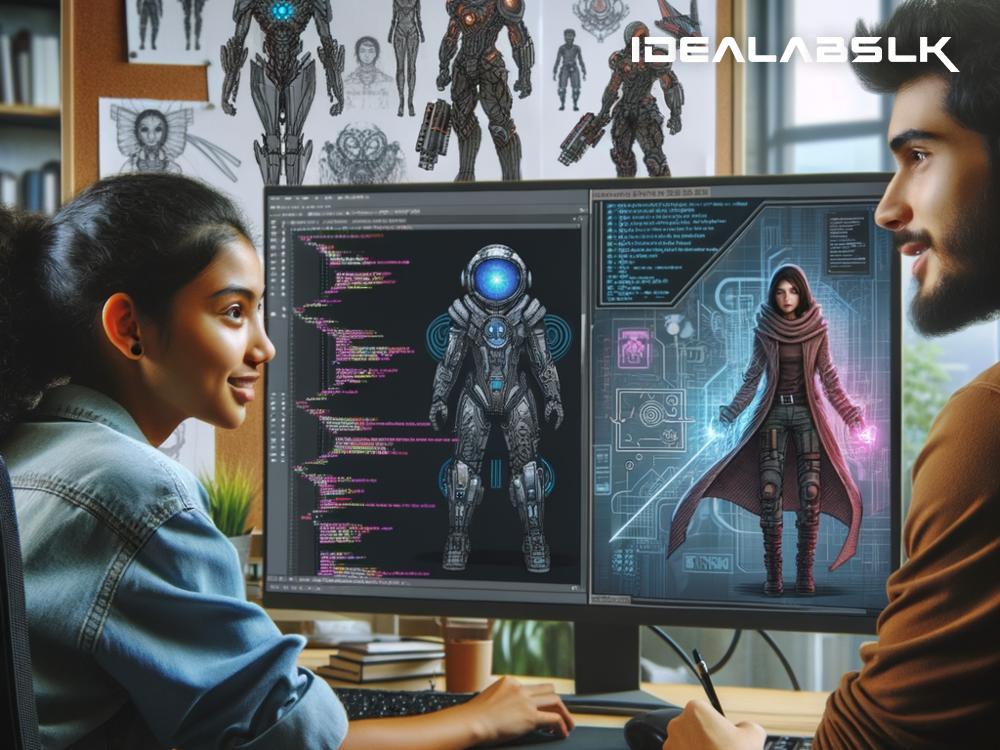The Role of AI in Shaping Smarter Game Narratives: A Look at Upcoming RPGs Like Cyberpunk 2077 2 in 2025
In recent years, we've seen a significant shift in how video games tell stories. Gone are the days when players were just passive receivers of a pre-determined storyline. Today, games like role-playing games (RPGs) are pushing the envelope, offering dynamic narratives that change based on player choices. And at the heart of this evolution lies artificial intelligence (AI). By leveraging AI, developers create richer, more engaging narratives and intricate decision trees, promising an unprecedented level of immersion in upcoming titles like Cyberpunk 2077 2, slated for release in 2025.
So, how exactly is AI revolutionizing game narratives in RPGs? Let's dive in.
Crafting Dynamic Narratives
AI is enabling game developers to craft stories that are not only complex but also dynamic. Unlike traditional narratives that follow a linear path, AI-driven stories adapt to the player's actions. This means every choice you make could lead to a different outcome, making the gaming experience incredibly personalized and immersive. For example, in a game like Cyberpunk 2077 2, choosing to help a character in distress might open up a whole new storyline that would have remained hidden had you decided otherwise.
This level of dynamic storytelling is made possible by sophisticated algorithms that map out countless decision trees, each leading to a unique narrative outcome. These algorithms are continually learning and evolving based on player interactions, ensuring that the game remains challenging and engaging throughout.
Enhancing Character Depth and Interaction
AI not only changes how stories unfold but also enriches character development and interaction. In next-gen RPGs, AI-driven characters can have memories, form opinions based on your actions, and even develop relationships with you. This depth of interaction adds a layer of realism to the game, making the world feel alive and responsive.
Imagine walking into a virtual bar in Cyberpunk 2077 2 and being greeted differently based on your past actions. Perhaps you've earned a reputation as a formidable ally, or maybe you're known for betraying those who trusted you. The bartender's reaction will be tailored to your specific journey, thanks to AI.
Creating Non-Linear Decision Trees
One of the most significant advantages of using AI in game development is the ability to create intricate, non-linear decision trees that offer a multitude of pathways for the player to explore. This complexity ensures that no two playthroughs are the same, greatly enhancing replayability.
In traditional games, creating such extensive decision trees would be a daunting task, often resulting in oversimplification. However, AI simplifies this process by automatically generating and managing numerous possible outcomes, allowing for a richness and variety that was previously unattainable.
Overcoming Challenges
While the integration of AI in creating game narratives and decision trees offers numerous benefits, it's not without its challenges. One significant hurdle is ensuring that the AI-generated content remains engaging and coherent throughout the game. With millions of possible storylines, maintaining a high level of quality and consistency is a daunting task.
Moreover, developers must strike the right balance between giving players freedom and ensuring the narrative remains focused. Too many choices can overwhelm players and dilute the storyline, while too few can make the game feel restrictive.
Looking Ahead
As we look towards the future, it's clear that AI will play an increasingly central role in video game development, particularly in RPGs like Cyberpunk 2077 2. With advances in AI technology, we can expect even more sophisticated narratives and decision-making systems, ultimately leading to games that are more immersive, interactive, and personalized than ever before.
In conclusion, AI is not just a tool for creating smarter game narratives; it's reshaping our entire gaming experience. By making stories more dynamic, characters more lifelike, and decision trees more intricate, AI is opening up new possibilities for storytelling in video games. As players, we stand on the cusp of a new era, one where our choices genuinely matter and where every game offers a unique narrative journey. The future of RPGs is bright, and AI is leading the way.

